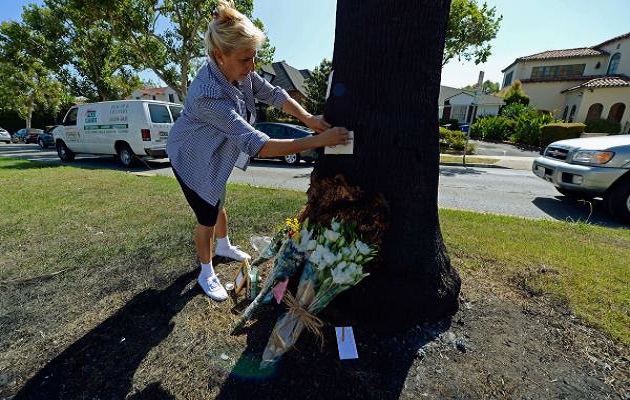
This undated file photo provided by Blue Rider Press/Penguin shows award-winning journalist and war correspondent Michael Hastings. (AP Photo/Blue Rider Press/Penguin, File)
In both life and death, Michael Hastings caused a media storm. The divisive journalist passed away on Tuesday, June 18 in a car accident in Los Angeles. News of his tragic death at the age of only 33 has the world of journalism both shocked and riven.
To most, both in the journalist community and out, Hastings will be remembered for his ground-breaking exposé of Stanley McChrystal for Rolling Stone magazine. In his investigation, Hastings sought to profile the former supreme commander of NATO forces in Afghanistan, as well as his staff. What he found would shake the US military establishment to its core and ultimately lead to the dramatic dismissal of McChrystal by President Obama. In the article, “The Runaway General,” McCrystal displayed a crude contempt for Obama and his advisors. The machinery behind the already-unpopular US campaign in Afghanistan was suddenly laid bare to the public in all its unsavoury glory.
The fallout was immense, and not only in military circles. The media industry felt the repercussions of Hastings’ report, too. Many were far from pleased. There was a feeling that he had ruined things for everybody else, that his disclosure would lead to closer supervision and monitoring of journalists reporting on the US military. Some hacks complained of Hastings’ lack of professionalism in publishing off-the-record conversations. Others felt he unfairly cornered McChrystal, and that Hastings was mainly out to make a name for himself.
But for many of his counterparts, Hastings will be fondly remembered as one of the most influential journalists of his time. In days since news of Hastings’ death spread, it has becoming increasingly apparent that he had many friends in the media world. In a personal obituary in the Guardian, Spencer Ackerman comes to Hastings’ defence. He argues that Hastings “didn’t publish anything that was explicitly off the record,” and that he was a man of integrity, that he was not looking for a quick-hit scoop, but was instead deeply invested in his reporting.
Exactly three years after the revelations of McChrystal’s misconduct first hit, Hastings is once again the object of intrigue and discord. A public spat has already broken out between Hastings’ widow, Elise Jordan, and the New York Times over their obituary of her late husband. Jordan felt the paper had unfairly questioned the accuracy of Hastings’ article on McChrystal. In an email to the editor, she requested the passage be changed to reflect what she saw to be unquestionable evidence of Hastings’ claims. The paper refused.
Conspiracy theorists are having a field day over the possible causes of his death: he was reportedly killed after his car hit a tree. On Wednesday evening, WikiLeaks tweeted, “Michael Hastings contacted WikiLeaks lawyer Jennifer Robinson just a few hours before he died, saying that the FBI was investigating him,” turning what had been a frenzy into a torrential media storm.
Far away from the madding crowd, he will be remembered among Middle East commentators for his steadfast refusal to join in America’s victory dance on Iraq’s grave. From 2005 to 2007, he was Newsweek’s man on the ground in Baghdad. In an article he wrote for Asharq Al-Awsat’s sister publication, The Majalla, he spoke of his frustration over the American media’s depiction of the war in Iraq as a success story. It was also during this time that he wrote his first book, I Lost My Love in Baghdad: A Modern War Story, about the tragic death of his fiancée, Andi Parhamovich, after she moved to Iraq to be with him.
Hastings lived to see the ten-year anniversary of the invasion of Iraq. His view on the war was likely unchanged since he wrote his scathing piece for The Majalla in 2010. Speaking on the decision to go to war in Iraq, Hastings observed a resounding reality that still rings true today: “[W]e’re already seeing a huge push from the US foreign policy and media circles to slap a happy ending on what has been, always will be, a thoroughly tragic story.”
Hastings had known many stories without happy endings. He wrote the truth even if it was not the ending people hoped for. His brazen and honest approach to journalism contributed greatly to the narrative on the wars in Iraq and Afghanistan. Now Hastings’ untimely death has become a story in itself. Perhaps that is the way he would have wanted it to be—he not one for doing things by halves.
